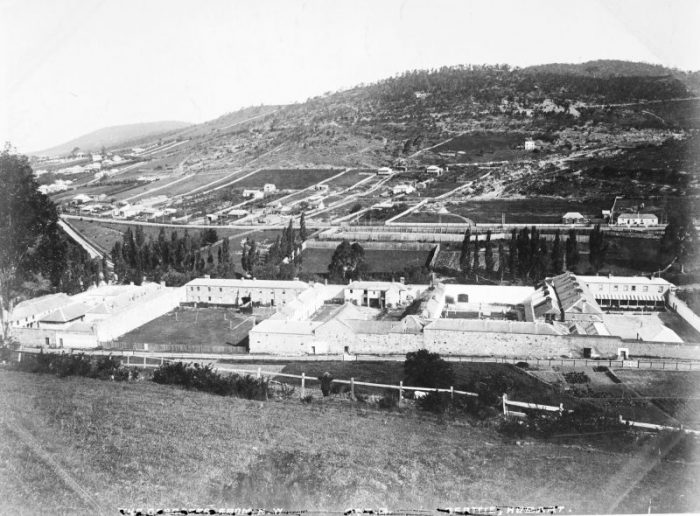Just days after the first women were relocated to Cascades, the Rules and Regulations for the management of the House of Correction were issued to the Principal Superintendent. The rules outlined the staff required to manage the establishment: a Superintendent, a Matron, an Overseer and Task Mistress for the Crime Class, a Porter, a Clerk and two Constables. They also stipulated how the women were to be divided, in both class and duties. Governor Arthur insisted that the women be placed in three distinct classes that ‘on no account be suffered to communicate with each other’.
The first class was to consist of women recently arrived from England who exhibited good behaviour on the journey – as reported by the surgeon on-board, as well as those returning from service with good characters and those who had successfully seen out their probation in second class. This class alone was considered assignable, and the women were sent to service when the appropriate employment could be obtained.
The second class was to comprise those who had been guilty of minor offences and those who, by their improved conduct, merited removal from the crime class. The latter was the lowest rung on the ladder, comprised of women who had been transported for a second time, those guilty of misconduct on their journey to the colony, convicted of offences before the Supreme Court, or those who committed offences within the walls of the establishment.
The class system regulated both clothing and daily tasks of the women while in the factory. The first class (or more trustworthy) women were employed as cooks, task overseers and hospital attendants. Second class convicts were employed in making clothes for the establishment and preparing and mending linen. The crime class was sentenced to the washtub, laundering for the factory, the orphan school and the penitentiary; they also carded and spun wool. All of these tasks were subject to change at the discretion of the Principal Superintendent.
November to March saw unrelenting hours of labour, with the shorter days in winter being the only solace. With the sun not setting until after dinner for a large part of the year, the women were labouring up to 12 hours a day and even the slightest disobedience to the rules was punishable.
Females guilty of disobedience of orders, neglect of work, profane, obscene, or abusive language, insubordination, or other turbulent or disorderly or disrespectful conduct, shall be punished by the superintendent with close confinement in a dark or other cell, until her case shall be brought under consideration of the Principal Superintendent.
– Rules & Regulations, 1829


